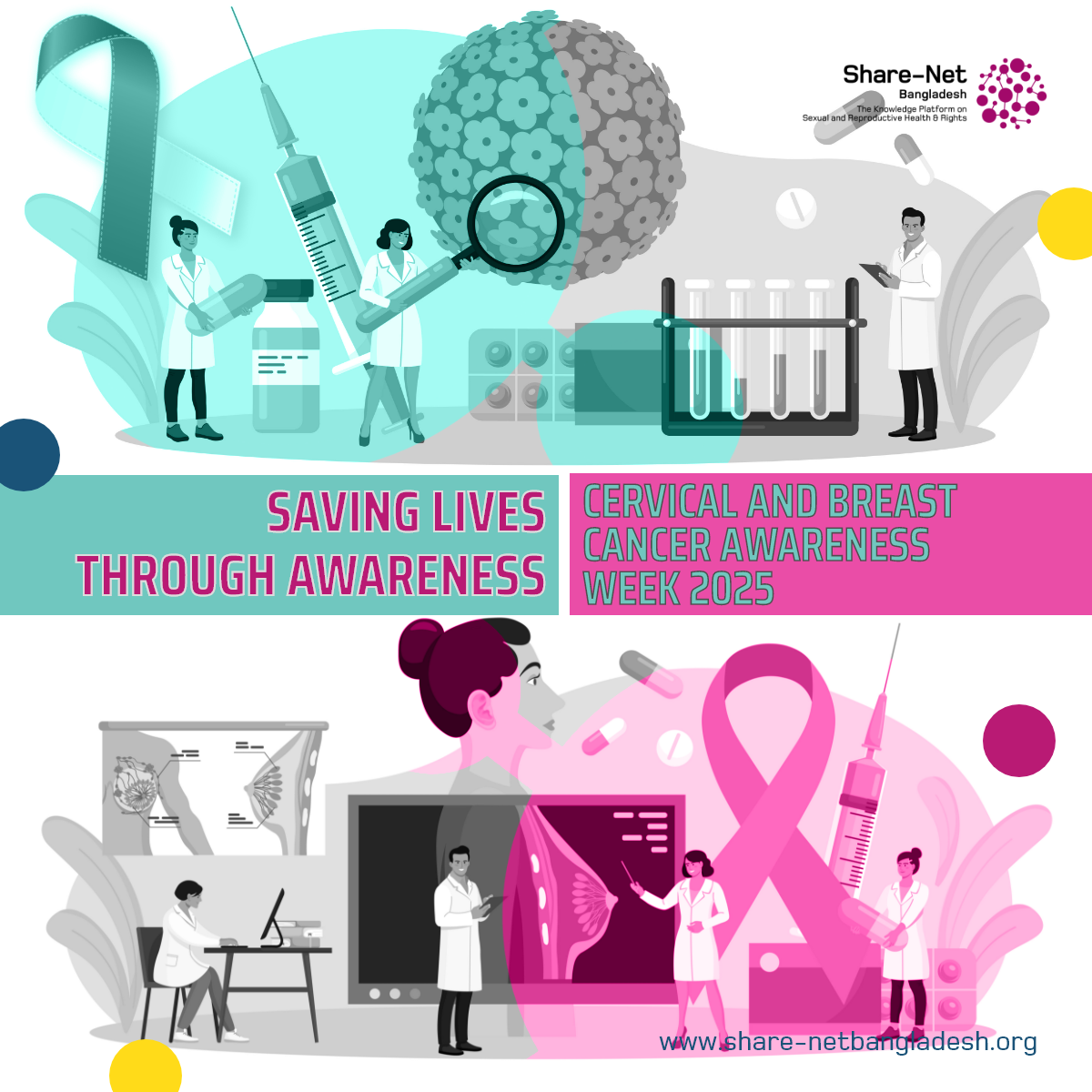Saving Lives Through Awareness: Cervical and Breast Cancer Awareness Week 2025
Cervical Cancer and Breast Cancer Awareness Week, observed from January 19 to 25, 2025, highlights two of the most pressing health concerns for women in Bangladesh. These diseases are among the leading causes of cancer-related deaths in the country, reflecting deep-rooted challenges in women’s sexual and reproductive health rights (SRHR). While awareness campaigns and government initiatives have made strides, gaps in healthcare infrastructure and access to essential services still put millions of lives at risk.
Cervical cancer is the second most common cancer among Bangladeshi women, with 12,000 new cases and over 6,000 deaths reported annually. It is caused primarily by the Human Papillomavirus (HPV), which can be prevented through vaccination and early screening. Yet, vaccination coverage remains alarmingly low, despite its proven effectiveness when administered to girls aged 13 to 15.
Experts emphasise that regular screening starting at age 30 can significantly reduce cervical cancer mortality. Free or affordable screenings are now available through government and NGO initiatives, but limited awareness and stigma often deter women from seeking help. Additionally, early marriages and pregnancies—prevalent in Bangladesh—substantially increase the risk of cervical cancer. Public health campaigns must address these socio-cultural issues alongside medical interventions.
Breast cancer is equally alarming, with 13,000 new cases annually and 6,000 deaths. Despite advancements in treatment, many women seek care too late due to a lack of awareness or access to affordable facilities. While private hospitals charge exorbitant fees for radiotherapy, the limited number of functional radiotherapy machines in public hospitals leaves patients waiting in queues for critical treatment.
Initiatives like the Bangladesh Breast Cancer Awareness Forum’s subsidised surgeries and free primary screenings in Dhaka provide glimmers of hope. These programs demonstrate the potential for community-driven solutions, yet their limited reach underscores the urgent need for nationwide action.
Bangladesh’s healthcare system struggles to meet the growing demand for cancer treatment. With only 37 radiotherapy machines available, many of which are out of order, the disparity in cancer care is widening. This forces thousands of patients to seek expensive treatment abroad, leaving behind those who cannot afford the costs.
The shutdown of critical radiotherapy and chemotherapy services in key hospitals has further exposed systemic flaws. Unless investments in healthcare infrastructure and workforce training are prioritised, the fight against cervical and breast cancer will remain an uphill battle.
Cervical Cancer and Breast Cancer Awareness Week serves as a reminder that these are not just health issues but reflections of broader SRHR challenges. Addressing them requires a holistic approach—combining awareness campaigns, affordable healthcare, and socio-cultural changes. Empowering women through education and access to sexual and reproductive health services is essential for reducing the burden of cancer in Bangladesh.
As Bangladesh observes this awareness week, it is an opportunity for policymakers, healthcare providers, and communities to unite in ensuring that no woman suffers or dies needlessly from preventable and treatable diseases.
Source:
The Business Standard and The Financial Express
Picture Credit: Envato Elements


